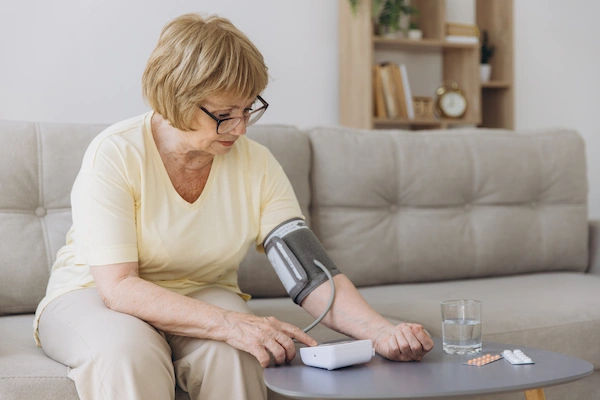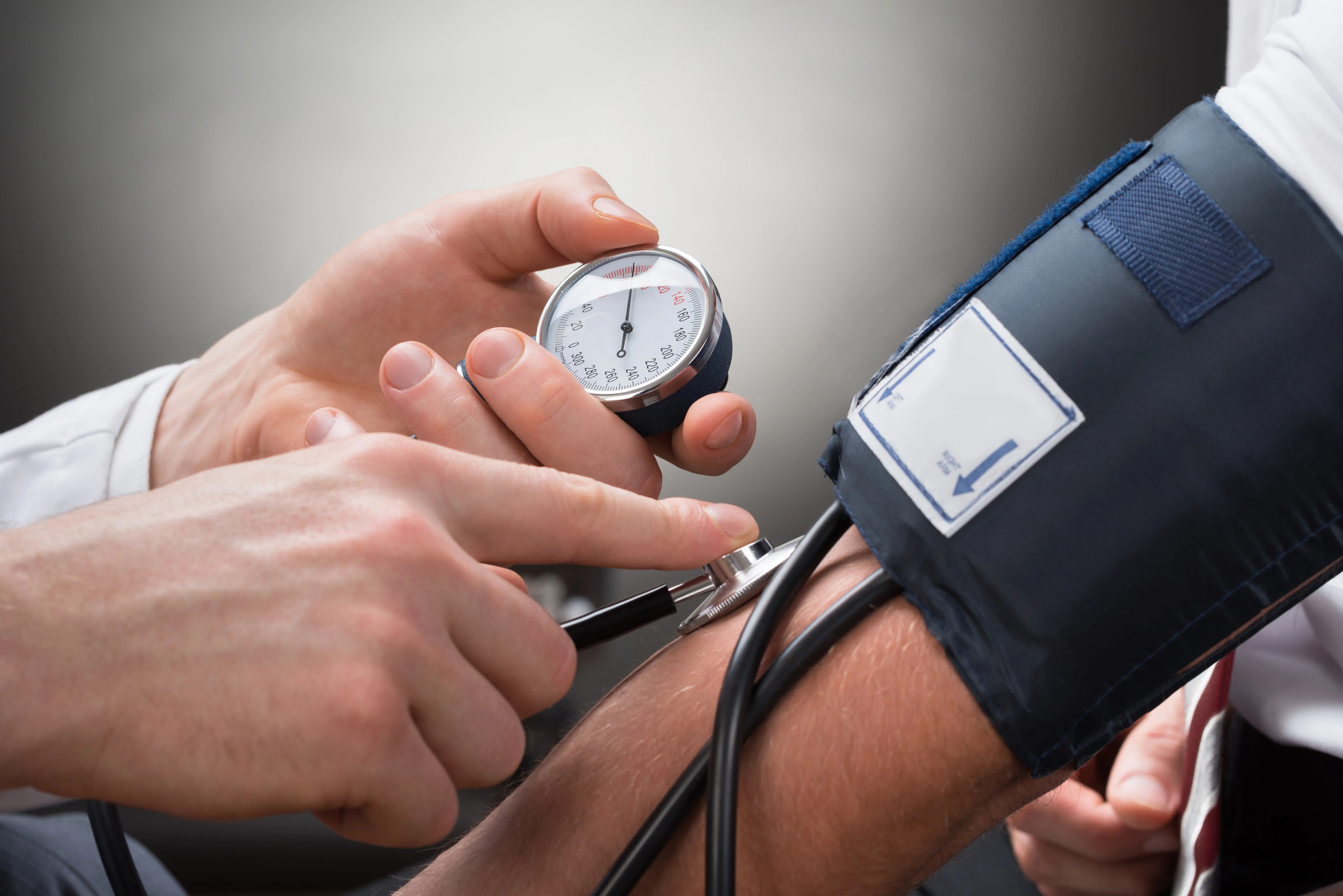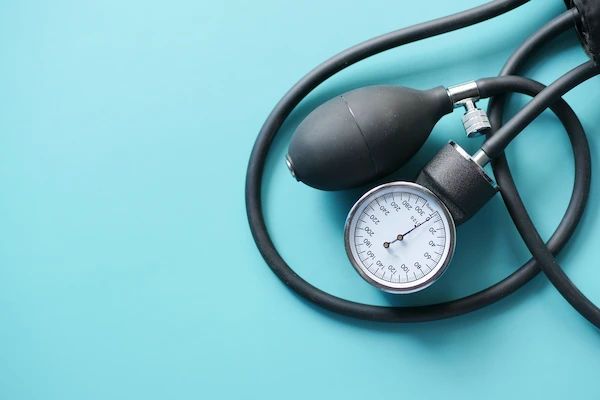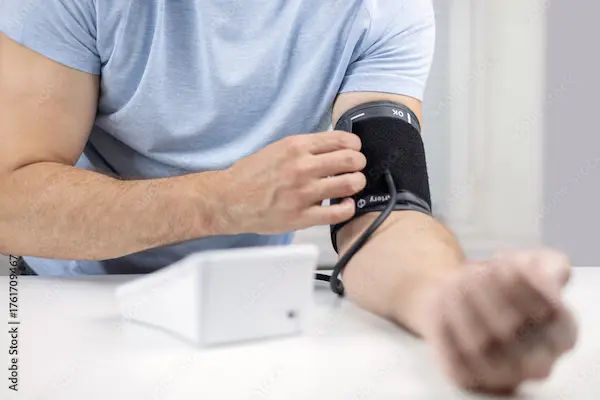Hypertension: The Silent Killer - A Guide to Prevention and Management
Learn how to prevent and manage hypertension—the silent killer. Discover its causes, symptoms, risks, and proven lifestyle strategies to control high blood pressure.

.webp?tr=q-80,f-webp,w-350,dpr-2,c-at_max 700w)
Introduction
You feel fine. There’s no pain, no noticeable discomfort. Yet, beneath the surface, a silent, persistent force could be straining your arteries, damaging your heart, and increasing your risk of life-threatening conditions. This is the reality of hypertension, often dubbed "the silent killer." High blood pressure is a pervasive global health issue, affecting nearly one in three adults, but its danger lies in its stealth. Many people live with it for years without a single symptom, only discovering it after it has caused significant harm. This guide demystifies hypertension, moving beyond the clinical definitions to provide a clear, actionable understanding of its causes, dangers, and, most importantly, the strategies for effective management and prevention. We will explore how simple lifestyle adjustments, informed choices, and regular monitoring can empower you to protect your long-term health and silence this silent killer for good.
What is Hypertension? More Than Just a Number
At its core, hypertension is a condition where the force of your blood pushing against the walls of your arteries is consistently too high. Think of your arteries as garden hoses. A normal water pressure keeps the hose functioning well. But if the pressure is constantly turned up to the maximum, the hose will eventually weaken, bulge, or burst. Similarly, chronic high pressure damages your arteries, making them less elastic and more susceptible to plaque buildup (atherosclerosis). This condition is a primary driver of serious cardiovascular events.
Systolic vs. Diastolic: Understanding Your Reading
When you get a blood pressure reading, you see two numbers (e.g., 120/80 mmHg). It’s crucial to understand what they mean:
- Systolic Pressure (the top number): This measures the pressure in your arteries when your heart beats and pumps blood out.
- Diastolic Pressure (the bottom number): This measures the pressure in your arteries when your heart is at rest between beats.
Both numbers are important, but for adults over 50, systolic blood pressure is often considered a more significant risk factor for cardiovascular disease.
Why is it Called "The Silent Killer"?
Hypertension earns its ominous nickname because it typically has no warning signs or symptoms. Unlike a headache or a fever, which alert you to a problem, high blood pressure can go undetected for years, silently causing damage to your blood vessels, heart, kidneys, and brain. The first sign might be a catastrophic event like a heart attack or stroke. This is why regular check-ups are non-negotiable, even if you feel perfectly healthy.
Consult a Cardiologist for the best advice
Root Causes and Key Risk Factors You Can't Ignore
Understanding what contributes to high blood pressure is the first step toward prevention. The causes are often categorised into factors you can and cannot change.
Non-Modifiable Risk Factors (What You Can't Change)
Here are some factors that influence your risk of hypertension are beyond your control:
- Age: The risk of developing hypertension increases as you age. Arteries naturally stiffen over time.
- Family History: Genetics play a role. If your parents or close relatives have high blood pressure, your risk is higher.
- Race/Ethnicity: Statistics show that hypertension is more common and often more severe in people of African heritage.
Modifiable Risk Factors (What You Can Control)
This is where you have power. Key contributors include:
- Unhealthy Diet: High sodium (salt) intake is a major culprit, as it causes your body to retain fluid. Low potassium intake (potassium helps balance sodium) and high saturated fat also contribute.
- Lack of Physical Activity: A sedentary lifestyle leads to weight gain and a higher heart rate, forcing your heart to work harder.
- Obesity or Being Overweight: The more you weigh, the more blood you need to supply oxygen and nutrients to your tissues, which increases the pressure on your artery walls.
- Tobacco Use and Vaping: Chemicals in tobacco can damage the lining of your arteries, causing them to narrow. Secondhand smoke also poses a risk.
- Chronic Stress: High stress levels can lead to a temporary spike in blood pressure. Over time, unhealthy coping mechanisms (like overeating or drinking) can compound the problem.
- Excessive Alcohol Consumption: Regularly drinking too much alcohol can raise your blood pressure by several points.
The Hidden Dangers: Long-Term Complications of Uncontrolled Hypertension
Leaving high blood pressure unmanaged is like ignoring a slow leak in a pipe—eventually, it leads to a flood of problems. The consistent high pressure puts a strain on your entire cardiovascular system and vital organs.
Heart Attack, Heart Failure, and Stroke
Hypertension is a leading cause of atherosclerosis, where arteries become clogged and narrowed. If this happens in the coronary arteries, it can lead to a heart attack. If it happens in arteries leading to the brain, it can cause a stroke. The heart muscle itself can also thicken and weaken from working too hard, leading to heart failure.
Kidney Damage (Hypertensive Nephropathy)
Your kidneys filter waste from your blood through a delicate network of tiny blood vessels. High pressure can damage these vessels, impairing kidney function and potentially leading to kidney failure, requiring dialysis or a transplant.
Vision Loss and Cognitive Decline
Tiny, delicate blood vessels in the eyes can be damaged by high pressure, leading to hypertensive retinopathy and vision loss. Similarly, reduced blood flow to the brain is linked to an increased risk of vascular dementia and mild cognitive impairment.
How is High Blood Pressure Diagnosed?
Diagnosis is straightforward and painless. If a single reading is high, your doctor will not immediately diagnose you with hypertension. They will typically recommend multiple readings over time.
In-Clinic vs. Ambulatory Blood Pressure Monitoring
- In-Clinic: The standard method where a healthcare professional takes your reading.
- Ambulatory Monitoring: You wear a device for 24 hours that takes regular readings as you go about your daily activities. This provides a more accurate picture and can rule out "white coat hypertension" (high readings due to anxiety in a clinical setting). If you need to monitor your blood pressure regularly, consulting a doctor online with Apollo24|7 can help you understand the right monitoring technique and frequency for your specific situation.
Understanding the Blood Pressure Categories
The American Heart Association guidelines are commonly used:
- Normal: Less than 120/80 mm Hg
- Elevated: Systolic between 120-129 and diastolic less than 80
- Hypertension Stage 1: Systolic between 130-139 or diastolic between 80-89
- Hypertension Stage 2: Systolic at least 140 or diastolic at least 90
- Hypertensive Crisis: Higher than 180/120 - This requires immediate medical attention.
Effective Strategies to Manage and Lower Your Blood Pressure
The good news is that hypertension is highly manageable through a combination of lifestyle changes and, if necessary, medication.
Lifestyle Modifications: Your First Line of Defence
For many with elevated or stage 1 hypertension, lifestyle changes can be powerful enough to bring blood pressure into a healthy range.
The DASH Diet: A Proven Approach
The dietary approaches to stop hypertension (DASH) diet is specifically designed to combat high blood pressure. It emphasises:
- Fruits, vegetables, and whole grains.
- Lean protein sources like fish and poultry.
- Low-fat dairy products.
- It is rich in potassium, calcium, magnesium, and fiber, and low in saturated fat and sodium.
The Role of Regular Physical Activity
Aim for at least 150 minutes of moderate-intensity exercise (like brisk walking, cycling, or swimming) per week. Exercise strengthens your heart, allowing it to pump blood with less effort, which directly lowers the pressure in your arteries.
Stress Management and Quality Sleep
Chronic stress keeps your body in a "fight-or-flight" mode, elevating blood pressure. Techniques like meditation, deep breathing, yoga, and ensuring 7-9 hours of quality sleep per night can significantly help regulate stress hormones.
Common Medications for Hypertension
If lifestyle changes aren't sufficient, doctors may prescribe medication. Common classes include:
- ACE Inhibitors: Relax blood vessels.
- Diuretics ("Water Pills"): Help your kidneys remove sodium and water, reducing blood volume.
- Calcium Channel Blockers: Relax the muscles of your blood vessels.
It's essential to take medication exactly as prescribed and not stop without consulting your doctor. If you experience side effects from your blood pressure medication, it's crucial to discuss them with a healthcare professional. You can easily book a follow-up consultation with a specialist on Apollo24|7 to adjust your treatment plan.
Proactive Prevention: Keeping Hypertension at Bay
Prevention is always better than cure. Adopting the healthy lifestyle habits discussed above—even if your blood pressure is currently normal—is the most effective way to prevent hypertension from developing in the first place. Regular health screenings are a critical part of this preventive approach. Apollo24|7 offers a convenient home collection for tests like lipid profile and kidney function tests, which can help assess your overall cardiovascular risk.
Conclusion: Taking Control of Your Heart Health
Hypertension may be a silent condition, but your response to it doesn't have to be. Armed with knowledge and a proactive mindset, you can effectively manage your blood pressure and safeguard your long-term health. Remember, small, consistent steps—like choosing a piece of fruit over a salty snack, taking a daily walk, or practicing mindfulness—can collectively have a profound impact. Don't wait for symptoms to appear. Take charge today by scheduling a check-up, understanding your personal risk factors, and committing to a heart-healthy lifestyle. Your heart, brain, and kidneys will thank you for years to come.
Consult a Cardiologist for the best advice
Consult a Cardiologist for the best advice

Dr. Venkatesh T K
Cardiologist
10 Years • MBBS, MD (Med), DNB (Cardio)
Bengaluru
Apollo Hospitals Jayanagar, Bengaluru
(75+ Patients)

Dr. Sarita Rao
Cardiologist
17 Years • MBBS, DM (Cardiology)
Indore
Apollo Hospitals Vijay Nagar, Indore
Dr.bino John Sahayo J
Cardiologist
18 Years • Fellowship in Intravascular Imaging, DNB (Cardio),DM (Cardio), DNB (Gen.Med),MD (Gen.Med),MBBS
Chennai
Apollo Speciality Hospitals OMR, Chennai

Dr. Dayanashre N
General Physician
3 Years • MBBS
Bengaluru
PRESTIGE SHANTHINIKETAN - SOCIETY CLINIC, Bengaluru

Dr. Ramalinga Reddy
General Physician
5 Years • MBBS MD General medicine
Bengaluru
PRESTIGE SHANTHINIKETAN - SOCIETY CLINIC, Bengaluru
Consult a Cardiologist for the best advice

Dr. Venkatesh T K
Cardiologist
10 Years • MBBS, MD (Med), DNB (Cardio)
Bengaluru
Apollo Hospitals Jayanagar, Bengaluru
(75+ Patients)

Dr. Sarita Rao
Cardiologist
17 Years • MBBS, DM (Cardiology)
Indore
Apollo Hospitals Vijay Nagar, Indore
Dr.bino John Sahayo J
Cardiologist
18 Years • Fellowship in Intravascular Imaging, DNB (Cardio),DM (Cardio), DNB (Gen.Med),MD (Gen.Med),MBBS
Chennai
Apollo Speciality Hospitals OMR, Chennai

Dr. Dayanashre N
General Physician
3 Years • MBBS
Bengaluru
PRESTIGE SHANTHINIKETAN - SOCIETY CLINIC, Bengaluru

Dr. Ramalinga Reddy
General Physician
5 Years • MBBS MD General medicine
Bengaluru
PRESTIGE SHANTHINIKETAN - SOCIETY CLINIC, Bengaluru
More articles from High blood pressure hypertension
Frequently Asked Questions
Can I have high blood pressure and feel completely fine?
Yes, absolutely. This is why hypertension is so dangerous. Most people experience no symptoms. The only way to know is through regular blood pressure monitoring.
What are some natural ways to reduce hypertension quickly?
While there's no instant 'cure,' you can see improvements quickly by making changes. Immediately reducing your sodium intake, increasing potassium-rich foods (like bananas, spinach, and sweet potatoes), engaging in 30 minutes of moderate exercise, and practicing deep breathing for stress can all lead to measurable reductions in a relatively short time.
What is the difference between primary and secondary hypertension?
Hypertension is categorized into two main types based on its underlying cause. Here are the differences between them:
Primary (Essential) Hypertension: This is the most common type (about 90-95% of cases). It has no identifiable cause and develops gradually over many years due to a combination of genetics and lifestyle factors.
Secondary Hypertension: This is caused by an underlying health condition, such as kidney disease, thyroid problems, or obstructive sleep apnea. It often appears suddenly and causes higher blood pressure than primary hypertension.
Can young people get hypertension?
Yes. While risk increases with age, young adults and even children can develop hypertension, especially due to rising rates of obesity, poor diet, and sedentary lifestyles. It's important for all adults to have periodic screenings.
How does alcohol affect blood pressure?
Drinking too much alcohol (more than 3 drinks in one sitting or heavy regular use) can raise your blood pressure by several points. It can also reduce the effectiveness of blood pressure medications. Moderating alcohol intake is a key part of management.



_1.webp)
